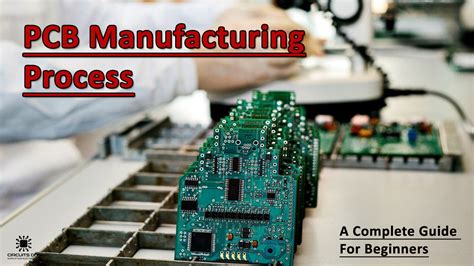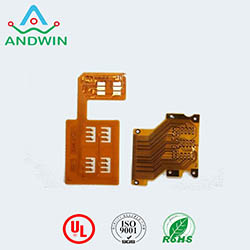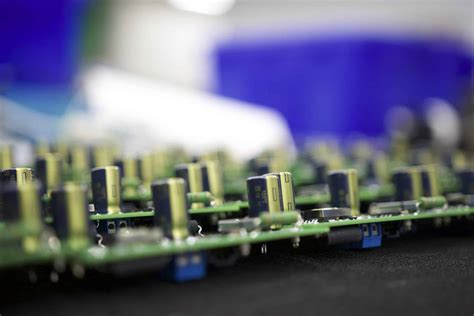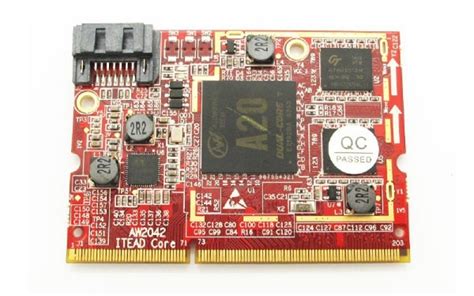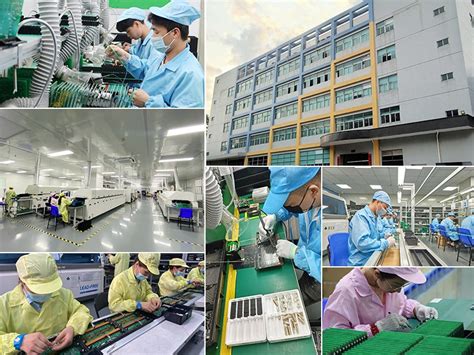Top Tips for Choosing a Custom PCB Board Manufacturer
Key Takeaways
Choosing the right custom PCB board manufacturer is crucial for the success of your pcb manufacturing business. Understanding your specific needs is the first step; consider factors such as board size, complexity, and material requirements. This knowledge will help you communicate effectively with potential manufacturers. Next, evaluating manufacturing quality and standards is essential. Look for certifications that indicate a commitment to maintaining high quality. Don’t overlook the pcb manufacturing cost, which can vary widely among pcb manufacturing companies; always analyze how different prices correspond to the quality of materials and services provided. It’s also important to assess turnaround times, as a balance between speed and quality can significantly impact your project timeline. Remember that open lines of communication with your manufacturer will facilitate smoother processes and ensure you are on the same page throughout production. Exploring advanced technologies used by potential manufacturers can reveal their capabilities in delivering innovative solutions that could enhance your project. Lastly, consider seeking customer reviews and case studies, as these insights can provide invaluable information on previous performance—allowing you to make an informed decision regarding which manufacturer aligns best with your goals in the intricate realm of PCB production.
Understanding Your PCB Requirements: Key Considerations
When embarking on your pcb manufacturing journey, understanding your specific requirements is paramount. This includes defining the type of circuit boards necessary for your projects, whether they are simple or complex. Key considerations should involve the intended application of your PCB. For instance, will it be used in consumer electronics, medical devices, or automotive components? Each application has unique specifications and reliability standards.
Moreover, you should assess the capabilities of PCB manufacturing companies regarding various aspects such as board thickness, layer counts, and material types. Knowing these factors will help you ensure that your boards meet performance expectations while complying with industry standards.
In addition to technical requirements, you should also factor in the pcb manufacturing cost versus the value provided by a manufacturer. Sometimes opting for a lower cost may compromise quality or lead times. It’s important to weigh potential savings against the quality and reliability that will affect your final product.
Ultimately, having a clear understanding of your PCB needs not only guides your selection process but also establishes a foundation for productive communication with potential manufacturers. This clarity will empower you as you approach discussions about pricing and capabilities with manufacturers who can best support your pcb manufacturing business.
“Always begin by defining what you need; it saves time and money later.”
Evaluating Manufacturing Quality and Standards
When it comes to selecting a custom PCB board manufacturer, evaluating manufacturing quality and standards is paramount. Understanding the intricacies of PCB manufacturing requires you to consider various aspects that contribute to the final product’s reliability and functionality. Begin with a thorough examination of the manufacturer’s certifications and compliance with international standards, such as IPC-A-600 or ISO 9001, which are indicators of their commitment to quality. You should also inquire about their quality control processes; effective PCB manufacturing companies utilize rigorous testing methods throughout production to ensure that every individual board meets specified criteria.
Another essential factor is materials—confirming that the manufacturer uses high-grade substrates and components can lead to a significant difference in performance. If you are keen on understanding how the manufacturer achieves their standards, ask about their PCB manufacturing cost associated with ensuring quality, as lower costs might compromise durability or functionality. Ultimately, your choice should align with both your project’s demands and your budgetary considerations within the PCB manufacturing business landscape. By prioritizing durability, reliability, and adherence to recognized standards in your evaluation process, you can confidently select a manufacturer that will meet your production needs effectively.
Analyzing Cost vs. Value in PCB Production
When engaging with PCB manufacturing companies, understanding the delicate balance between cost and value is crucial. It’s easy to be lured by lower PCB manufacturing costs, but this can sometimes lead to compromises in quality or service, which you should avoid at all costs. Instead, evaluate what aspects of PCB manufacturing are most important for your project. Considerations may include material quality, the complexity of the designs, and specific capabilities of the manufacturer. It’s also beneficial to think long-term; investing a little more upfront can often result in better performance and durability of your final product, ultimately proving more cost-effective over time. Don’t forget to scrutinize how various PCB manufacturing companies measure up in terms of their reputation and delivery timelines. A penny saved today could lead to a dollar lost tomorrow if your project is delayed or requires reworks due to subpar production standards. Thus, approach your choices with a well-rounded understanding of both immediate expenses and the overall value derived from your selected partner in the PCB manufacturing business.
Turnaround Times: Balancing Speed and Quality
When it comes to custom PCB manufacturing, you might find yourself in a rush to meet deadlines. However, it’s crucial to understand that the speed of production can often affect quality. Many PCB manufacturing companies offer expedited services, but this doesn’t always guarantee a superior outcome. Therefore, you should evaluate how each manufacturer balances speed and quality. Look into their production processes and any technologies they use; advanced methods can significantly enhance efficiency without compromising the integrity of the printed circuit boards. Additionally, consider the PCB manufacturing cost associated with quicker turnaround times. Sometimes, opting for a slightly longer timeline could result in better workmanship and fewer long-term issues. Always ask potential manufacturers about their average turnaround times and any flexibility they offer for changes or last-minute requests. By doing so, you can ensure that your timelines align with your project’s needs without sacrificing the quality needed for success in your PCB manufacturing business. Making informed decisions in this area will ultimately lead to more satisfactory outcomes for your projects.
The Importance of Communication with Your Manufacturer
When engaging with a custom PCB board manufacturer, effective communication is pivotal to the success of your pcb manufacturing efforts. Establishing a clear line of dialogue ensures that your specific requirements are understood and met. It is essential to discuss not only the technical specifications but also the overall vision for your project. This includes addressing pcb manufacturing cost, which can vary widely among different pcb manufacturing companies. By openly discussing budget constraints early in the process, you can align both teams towards a shared goal, fostering a collaborative environment that enhances quality outcomes.
Moreover, maintaining regular communication allows you to monitor progress and adapt to any potential challenges that may arise during production. Understanding the capabilities of your manufacturer, including any advanced technologies they utilize in pcb manufacturing, is vital; this knowledge enables you to make informed decisions regarding adjustments needed on-the-fly. Additionally, ensuring that both sides are on the same page regarding timelines can help balance speed with quality and prevent unnecessary delays in your pcb manufacturing business. Ultimately, prioritizing open communication creates a strong foundation for a successful partnership with your custom PCB board manufacturer.
Exploring Advanced Technologies in PCB Manufacturing
As the landscape of PCB manufacturing continues to evolve, it’s essential to stay informed about the latest advancements that can enhance your production processes. Innovative technologies, such as automated assembly lines and advanced testing techniques, play a crucial role in improving efficiency and reducing defects. When you evaluate various PCB manufacturing companies, consider those that invest in state-of-the-art equipment and technologies, as this often indicates a commitment to delivering high-quality products. Additionally, the integration of AI-driven software into the design and production phases can significantly reduce time-to-market, ensuring that your custom boards are not only fabricated quickly but also meet stringent quality standards. As you navigate through your options, it’s important to assess how these technologies contribute to the overall PCB manufacturing cost and whether they provide added value against traditional methods. By prioritizing manufacturers who adopt these advanced solutions, you can position your PCB manufacturing business for success in a competitive marketplace. Understanding these technological trends will empower you to make informed decisions that align with your project’s specific needs.
Customer Reviews and Case Studies: Learning from Others
When it comes to selecting a custom PCB board manufacturer, one of the most effective ways to gauge their capabilities is by examining customer reviews and case studies. These insights allow you to understand the experiences of others who have engaged with specific PCB manufacturing companies. Look for testimonials that detail not only the quality of the products received but also the level of service provided throughout the process. Were they satisfied with the PCB manufacturing cost? Did they find the turnaround times acceptable? Furthermore, case studies can illuminate how a manufacturer’s expertise aligns with your unique needs, showcasing how they have successfully handled similar projects.
By assessing these real-world examples, you can make more informed decisions about which PCB manufacturing business is likely to provide you with not just a product, but a partnership that supports your goals. Understanding these dynamics can significantly impact the overall success of your PCB projects, ensuring that the manufacturer you choose will meet your standards for both quality and efficiency. In short, learning from others’ experiences can empower you in navigating the complexities of the PCB manufacturing landscape.
Finalizing Your Selection: Contracts and Terms to Consider
Once you’ve narrowed down your choices among various pcb manufacturing companies, it’s crucial to pay close attention to the contracts and terms they offer. This stage can significantly impact the success of your PCB production project. Start by reviewing the pcb manufacturing cost outlined in the contract; ensure that all fees are transparent and that there are no hidden charges. Different manufacturers have varying pricing models, so understanding what you’re paying for is key. Additionally, check for turnaround times, as delays can derail your project timeline. Make sure these timelines are specified in writing; this will protect you from unexpected delays later on.
Don’t forget about warranties and guarantees on the products. A reputable pcb manufacturing business should stand behind its work—look for clauses that detail what happens if something goes wrong with your order. Also, examine clauses related to intellectual property; after all, you want to safeguard your design as well as ensure that any proprietary information remains confidential. It’s crucial that communication channels are established clearly within the contract; this ensures you can reach your manufacturer easily if issues or questions arise during the production process.
Ultimately, taking these steps not only ensures you are working with a professional outfit but also helps in building a solid partnership with your pcb manufacturing provider—one that could benefit both parties in future projects as well.
Conclusion
In summary, selecting the right custom PCB board manufacturer is pivotal to the success of your pcb manufacturing business. Each decision you make will impact not only the quality of the final product but also your overall project timeline and budget. By effectively understanding your specific requirements and comparing options among various pcb manufacturing companies, you can ensure a better alignment between your needs and what manufacturers offer. It’s crucial to evaluate manufacturing quality and standards alongside projects’ pcb manufacturing costs, as this helps you gauge whether you are receiving good value for your investment.
Furthermore, communication plays a significant role; a manufacturer that understands your vision can help streamline both the design and production process. Remember to analyze turnaround times as you navigate these choices; balancing speed with quality can prevent costly delays in your project. As you finalize your decision, ensure that all terms are clearly outlined in contracts to protect both parties involved. By following these strategies, you’ll position yourself for successful partnerships within the pcb manufacturing industry while ensuring that every step meets the highest standards of excellence adjusted to your project’s goals.
FAQs
What should I consider when evaluating PCB manufacturing companies?
When choosing a PCB manufacturing company, it’s essential to assess their manufacturing capabilities, quality assurance standards, and expertise in your specific requirements. Reviewing their certifications and production processes can also provide insights into their reliability.
How does the pcb manufacturing cost vary?
The cost of PCB manufacturing can vary widely based on factors such as material quality, board complexity, quantity, and lead times. Comparing multiple quotes from different manufacturers can help you identify the best value for your specific project.
What is the importance of turnaround times in PCB production?
Turnaround times are crucial in the PCB manufacturing business because they impact your project timeline. While you may prioritize low costs, ensure that you are also considering how quickly the manufacturer can deliver without compromising on quality.
How can communication with my PCB manufacturer affect the project?
Effective communication with your PCB manufacturing company is key for a successful project. Clear discussions about requirements, deadlines, and potential issues can prevent misunderstandings and foster a collaborative partnership.
Are there advanced technologies to look for in a PCB manufacturer?
Yes, adopting advanced technologies such as automation, low-temperature co-fired ceramics, or multilayer boards can significantly enhance the quality and performance of your PCBs. Inquire about a manufacturer’s capabilities in these areas when making your selection.

